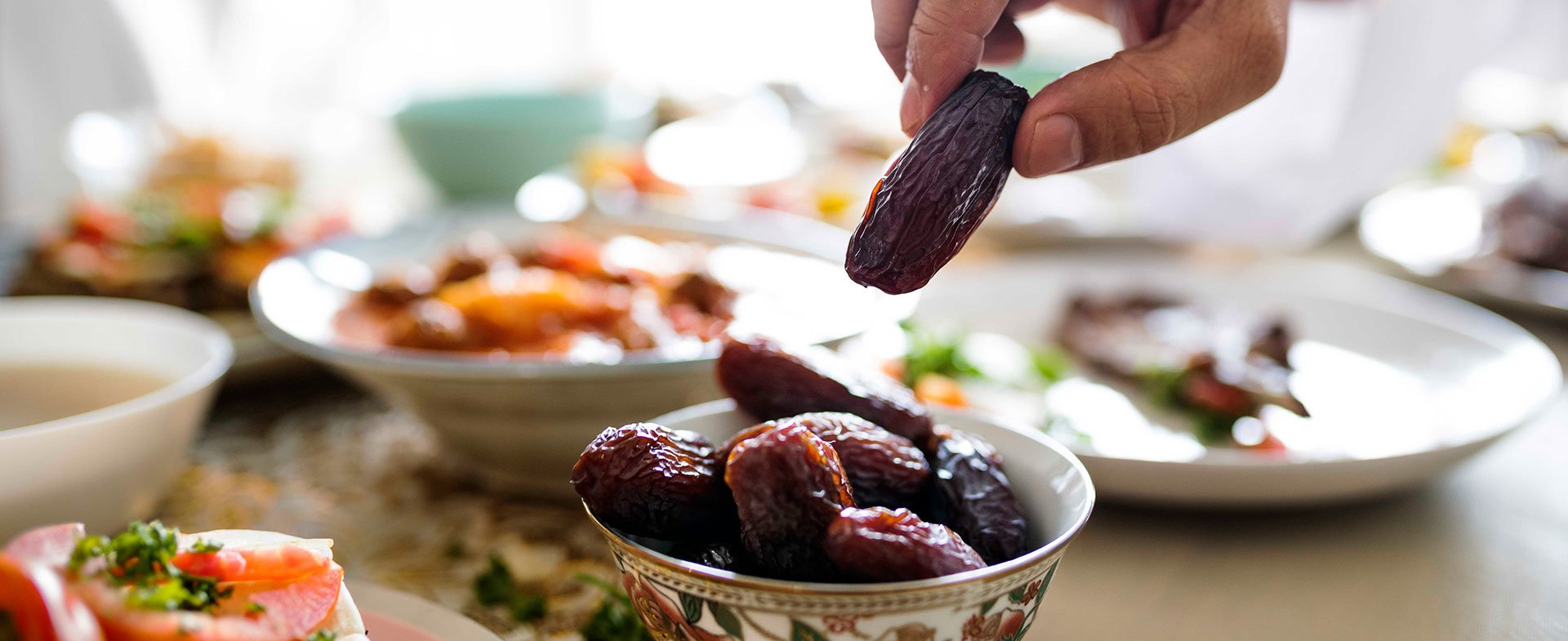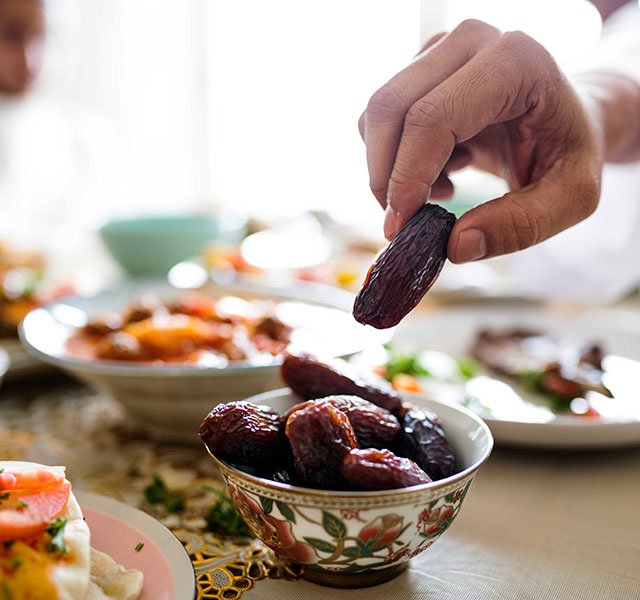During Ramadan, the holiest month of the Islamic calendar, millions of Muslims focus on spirituality, self-discipline, compassion and gratitude. They also abstain from all food and drink from sunrise to sunset. That’s no small feat any time of year, but especially when Ramadan comes during months with longer days (April and May).
There are fasting exemptions for people with health issues, pregnant and breastfeeding women, and others. But many faithful Muslims still wish to observe the fast during Ramadan. This includes some of the estimated 30 million Americans living with diabetes.
“If you have diabetes but plan to fast, special care is needed to ensure that you are not harming your health,” says Arti Bhan, M.D., an endocrinologist who specializes in diabetes care.
Dr. Bhan notes that the first step is to talk with your doctor — ideally a few weeks prior to the start of the fast — about your plans and the health risks that may be associated with it. Have a conversation about adjustments to medications, activities and meal plans you can reasonably make during Ramadan, and what to do if your glucose levels get off track.
Additionally, here is some general advice to those living with diabetes and fasting during Ramadan.
Exercise Guidelines During Ramadan
- Light to moderate exercise is recommended such as walking or bicycling.
- Taraweeh prayer activities of bowing, kneeling and rising should be considered part of daily exercise activities.
- Intense exercise is not recommended during fasting due to the risk of low blood sugar or dehydration.
Nutrition Considerations During Ramadan
Doctors recommend that you divide daily calories between Suhoor and Iftar, plus 1-2 snacks, if necessary.
- Make sure your meals are well balanced. Fill ½ your plate with nonstarchy vegetables, ¼ of your plate with protein and the other ¼ with starchy foods. Add 1 serving of fruit and dairy.
- Include high-fiber foods that release energy slowly after fasting such as whole-grain breads, beans and rice.
- Eat a combination of 5 servings of fruits, vegetables and salads.
- Practice moderation with foods that are high in saturated fats, such as ghee, samosas, pakoras, fried foods and sweets.
- Do not eat sugary desserts.
- Use small amounts of olive or grapeseed oil when cooking.
Finally, keep hydrated between sunset and sunrise by drinking water or other nonsugary beverages. Do not drink caffeinated and sweetened drinks.
When Should I Break the Fast?
Dr. Bhan recommends that you monitor your blood glucose levels throughout the day. You should break the fast if it’s lower than 70 mg/dl or higher than 300 mg/dl, or if you have symptoms of low blood sugar, high blood sugar, dehydration or acute illness occur.
Contact your doctor if you have questions, or seek immediate medical attention in case of emergency.
To make an appointment with a Henry Ford doctor, call 1-800-HENRYFORD (436-7936) or visit henryford.com.
For more information about diabetes and Ramadan, visit daralliance.org
Dr. Arti Bhan is the division head of endocrinology for Henry Ford Health and sees patients for diabetes, thyroid disorders and other conditions at Henry Ford Medical Centers in Detroit and Novi.
Henry Ford Health is a partner in the American Medical Group Foundation’s Together 2 Goal® campaign, a national effort to improve care for 1 million people with Type 2 diabetes.



